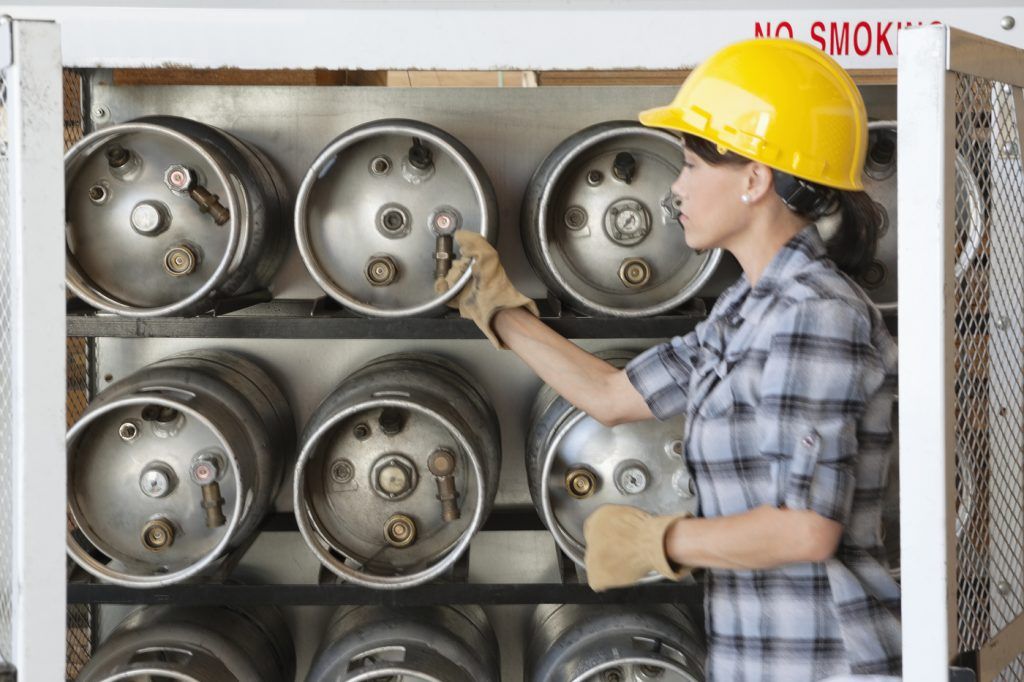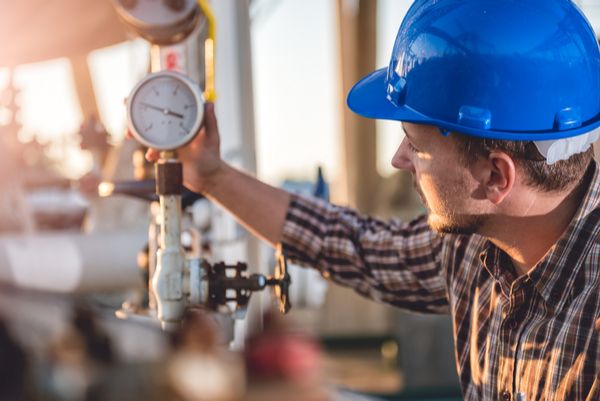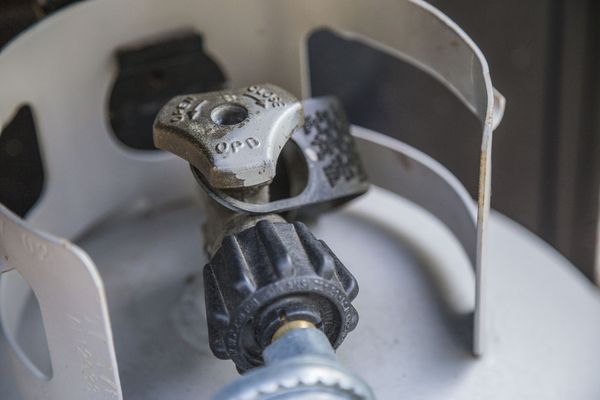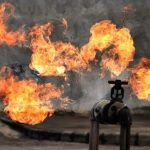
6 Tips For Safe Construction Propane Handling

When regulations are followed and safe handling is enforced, propane can be one of the safest forms of fuel to have in your worksite compared to gasoline, diesel or natural gases. That being said, propane is a highly flammable fuel which has the potential for its container to fail, risking an explosion. Proper storage and knowledge of the warning signs will keep you and your co-workers safe. Here are 6 things to keep in mine when propane is on your worksite:
1. The Nose Knows
Propane is prepared with the specialized odourant ethyl mercaptan to help you identify leaks quickly. This smell is very disagreeable to humans and will not take much to be noticed. It might resemble rotten eggs, onions or cooked cabbage, but more distinct. It is the same compound released to encourage evacuation of Ontario mine workers in case of emergency.
2. Inspect The Collar
Portable propane cylinders are regulated by Transport Canada and will carry a TC stamp on the collar to indicate approved containers. Propane tanks that are permanent installations are regulated by provinces, but all will carry a plate with a Canadian Registration Number. Be sure your tanks and cylinders have these markings. If not, there is no way to guarantee the integrity of the tanks and should be retired immediately.
3. Do Not Overfill Tanks or Cylinders
It is illegal to fill propane cylinders over 80% capacity to allow for volume fluctuations with changes in temperature. This is especially important in Canadian autumns and winters when the contrast between daytime and nighttime temperatures is at its peak.
4. Inspect Integrity of Containers Regularly
Ensure the integrity of each cylinder’s pressure release valve periodically to avoid risk of failure in an emergency. These valves are mandatory on all cylinders and should be routinely checked. A recorded inspection should be done at a minimum of every five years. Always have eyes open for leaks, broken seals and signs of corrosion or tampering.
5. Requalify and Replace Old Containers
Cylinders must be requalified or replaced every ten years. If your tank has not been requalified or made within the past 10 years, cease use immediately and have it requalified or recycled by requalifiers certified by Transport Canada. The Canadian Propane Association has documents online to teach you how to read the collar markings.
6. Ensure Safe & Proper Storage
Verify proper storage guidelines outlined by the TSSA are being followed. These rules dictate, among many other things, that cylinders must be stored upright and outside in a specialized cylinder storage area providing protection from tampering, vehicle collisions, and have clear “NO SMOKING” signs displayed. This storage area should be a safe distance from any hazard that could expose cylinders to heat or flames and be well ventilated. Ensure all valves are shut tight during storage, even when empty.

Advanced Training & Consulting Offers Construction Propane Training
At Advanced Consulting & Training we offer training programs related to propane safety. We are Chief Prevention Officer-approved, TSSA accredited, and WSIB approved safety provider. We serve Ottawa, GTA and much of Ontario with a variety of course options, including:
Construction Propane CH02-LP & CH02-NG
Transportation of Dangerous Goods
Contact us today to find out how Advanced Consulting & Training can help you with a safe & proactive propane safety program.


